In conversation with Brad Long on sustainability, butter, food and love
Chef Brad Long’s restaurant, Cafe Belong, is deliberately curated, yet utterly unpretentious; much like its owner. The Cafe lies at the heart of the Evergreen Brick Works in Toronto, a heritage industrial site in the Don Valley credited with once producing the brick used to build the Ontario Legislature and now a city park and community environmental centre. Cafe Belong offers a true local and sustainable food experience along with a meaningful approach to restaurant and menu design, and the way we think about what we eat.
It’s winter, and the floor to ceiling glass walls in the dining room have the effect of bringing in the dormant gardenscape and empty boardwalk. The austere, yet honest decor is a reminder of the seasonality that governs the menu based on locally sourced food. The celebrity chef who once presided over the MLSE kitchens feeding NBA and NHL players and over 20 million fans, as well as Veritas and the CN Tower’s 360 restaurant, is seated at “his table,” a large round at the rear of the restaurant. The necessary trappings of entrepreneurial life—laptop, coffee, paperwork—are spread out across the table. Entirely absent is the cult of personality one might expect to find around one of Canada’s most noteworthy chefs.
Brad Long is ready to talk and share his advice on what it takes to conceive and successfully operate a sustainable, artistically credible and honest venue founded on principles earned through his trade as a cook. We thought it best to share his unscripted thoughts in his own inimitable words.
On Cafe Belong
“The short version of that is I worked pretty much every aspect from my perception of this industry … through all the ranks, all the different styles of service from hot dogs and beer to fine dining feeding billionaires and millionaires to the average person…and somewhere in that process, you find yourself. You find what matters to you. At first, as a chef, you’re like, ‘This is my food and you can’t change it.’ And then, for me, anyway, I slowly morphed from that to, ‘What do you want? And I’m going to try and cook that.’ And that’s what this place is.
“I had run a lot of big operations, I had big teams, made a lot of money for other people…put my politics and my opinions aside about where things come from and what they’re supposed to be, and then I realized there’s something ever so slightly easier, I suppose, about doing it with someone else’s money…I felt that the honourable thing to do in the cycle would be to do it as an entrepreneur in a place that was supposed to matter, so I’m at Evergreen Brick Works, doing local, organic, sustainably harvested food, where my landlord is a national environmental charity, in a place that is essentially an environmental community centre. I felt that the path kind of brought me to here.
“I have really good staff retention and, for the most part, morale too, because there’s a palpable thread to how and what you buy and why you buy it that when a cook—even a cook who just walks in here—looks in the fridge or at what’s in mise en place—there’s a sudden realization, ‘Oh, you have all the actual, fresh good food. You must be cooking here.’”
 On sustainable, local procurement
On sustainable, local procurement
“Sourcing and procurement…part of that epiphany moment where I realized what the most important thing is. That came at a moment where I was tooling up to do a lot of molecular gastronomy…and I was looking at how dangerous it was. I started to listen to the voice at the back of my head saying, ‘This is a lot of the things that we’re doing to foods that are changing them from what they’re supposed to be.’ And, I think at that moment one of my farmers walked into my kitchen talking about what he was harvesting this week that was amazing, and said, ‘Here, try this carrot.’
“It has to be about the food, and where it came from and who grew it or who raised it. Now, I want to know who you are, why you’re a farmer, why do you grow that or raise that animal—how do you do it? That’s the fascination part for me…The food comes out of the people and the processes and the soil and the animals and the complexity of it all. I know that that’s the most vital portion of what I do.
“Knowledge is power. Food knowledge is power and life. I know I’m focused on one part of this, but it’s important because we all need to eat. The people I buy from, I’m paying them so that they’ll be there next year. I want their carrots and their chicken. I want to support them, not make them give it to me for less money…I think the idea of cheap food has its place, but it should not be the criteria from end to end in an industry. Cheap dictates just that: cheap.
“Paying for something not only means you’re going to get something better, but you’re securing the idea that it will be there next time you come back. I don’t want to kill the farm. I want the farm to thrive. I want the farmer to be the celebrity. The chef is just the guy who’s really taking the credit for what the farmer does, in a lot of ways.
It makes sense to have the source of the ingredients of what I sell invested in me and me in them so that the quality and flow of it never abates. I want to know I’m getting really good stuff, and I want to know I’m getting it from really good people who are doing the right thing, and then I want to just celebrate that—Yay! We’re all in this together. If that sounds flakey, maybe it is. But you can definitely do this—at this level—sustainably. It perpetuates doing it again. Everyone wants to do it again and the resources to do it again are there.”
“It has to be about the food, and where it came from and who grew it or who raised it. Now, I want to know who you are, why you’re a farmer, why do you grow that or raise that animal—how do you do it? That’s the fascination part for me.”
On cheap food
“Keeping food cheap is the worst thing you can do, because we can’t have cheap food for socially marginalized people who need it if there isn’t a range of pricing for food. All food being cheap negates good food for all. A range of food builds stability and sustainability. We need fine dining in the cycle, because we need the ability to pay for the great stuff, because the great stuff creates the mid-range stuff, and the cheap stuff, and the free stuff.
“We’re definitely at a point where waste—what was seen as garbage—is now thankfully being seen as usable. Do you want to know what a key to that is? We became very wasteful when we stopped hiring tradespeople; trained cooks. As a cook, I was trained never to waste anything.
“Everybody wants a set of compostable takeaway dishes, but whenever something says ‘compostable,’ it also says in really small print, ‘Where facilities exist.’ If there’s any task I have for the future, it’s trying to figure out a way to have a plate, cutlery and a glass of some kind you can take with you. We need a better way, but I don’t know what that is yet.”
On Butter
Unlike many chefs, Brad Long never really felt he needed to produce a book. When approached by Tracy Bourdain, Toronto book producer and editor, to work on a chef-to-reader series based on ingredients, Long acquiesced. “I said, ‘Read me the list.’ And she opens her computer, pulls up the list and goes, ‘Butter,’ and I went, ‘Stop. I’ll write a book on butter right there.’ And then, if you read the book, you realize why. It connects me to my family—my mom and my grandmother, and…I love it…and it’s one of those old chef’s cheats, but it’s not really a cheat…it’s supposed to be bad for you but it’s not bad for you. She just said it, and it rang a bell.
“I don’t feel that anyone needs a book from me, but if you’re going to have one, you’re going to have to endure me. That’s what Brad Long On Butter is. What I want people to take away from it is that joy of the food; that you can make delicious things from things that are around you, things that you have around you every day, all of the time. I’m just trying to pull the curtain back a little bit.
“One of the most important recipes in that book, and the one that I got a lot of feedback on, was just how to boil greens. People were like, ‘I tried that recipe and it was amazing!’ and I said, ‘You mean the one where you boil greens and put butter on them…?’ I realized that people didn’t know how to cook greens. I’m at that point where I don’t know what anyone knows about food anymore.”
On good fat
I talk to dairy farmers, and I want to get more cream … butter … high-fat butter… These are things are tools, in my mind, that build flavour and convey nutrients. Fat’s a great delivery system for nutrients. You want the presence of fat, because if you get rid of the fat, it doesn’t deliver the nutrients. I have a coffee shop, and people are constantly asking, ‘Why don’t you have 2% milk?’ and I say, ‘because I have 3 3/8%. It’s called whole milk, and you’ll be okay.”
“What I want people to take away from it is that joy of the food; that you can make delicious things from things that are around you, things that you have around you every day, all of the time. I’m just trying to pull the curtain back a little bit. ”
On food
“I basically curate now. I built this place, I designed this place. I wrote every letter on the first menus. I made the menu weird. There’s no apps and mains. There’s cold and hot with bigs and smalls, and you can have them any way you want. I broke all the rules. I did it in a different way, and then I handed it to the team … I don’t call myself a chef, I say I’m a cook. I’m a cook and a restauranteur, but my trade is ‘cook.’ That’s a really honourable trade.
“As someone who knows food, I want to convey the ability to get nutrients. I want people to have fun. I don’t mind eating by myself, but I’d way rather sit around a table with a bunch of people and we’re all talking and passing stuff—I like that interaction. I came from a big family, and I think that’s something that makes us healthy too. Eating with someone else and feeling good is another important aspect of eating.
Food is Love
“The sharing and enjoyment of food is something that is for your soul. You don’t have to do that. You really don’t. It just sort of pulls it all together for me. That’s why restaurants exist.”
A special thanks to Chef Brad Long for judging the Garland Canada Competition at RC Show 2019 and congrats to Chef Brad for taking home the RC Culinary Excellence Award.
Dairy Farmers of Ontario is our featured partner
Photos by Jonathan Bielaski
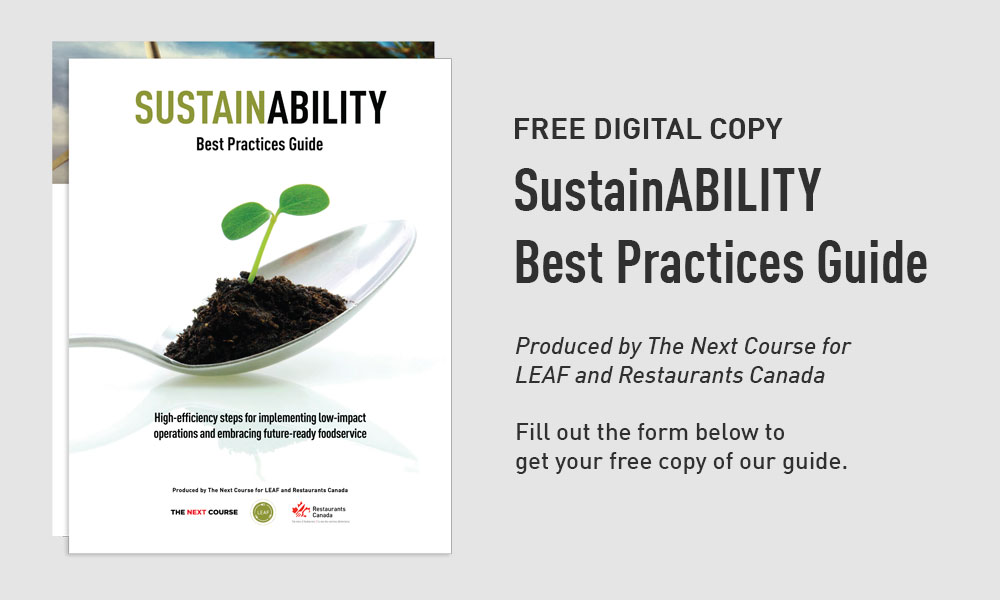



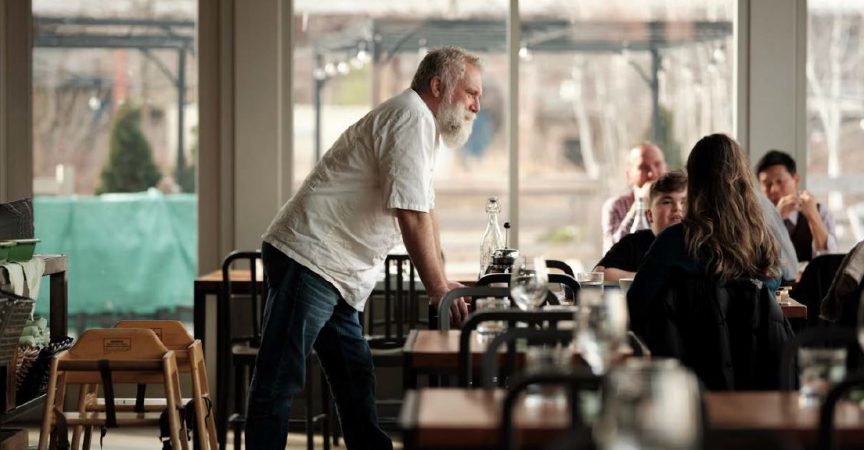
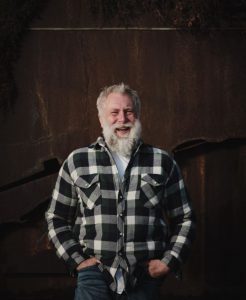 On sustainable, local procurement
On sustainable, local procurement

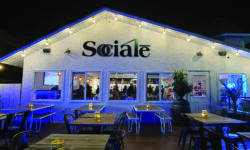
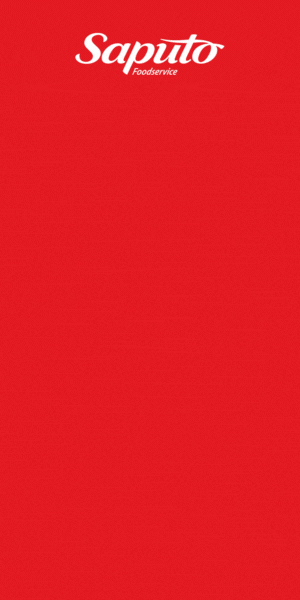
Brad Long was a genius at MLSE, and i wondered how he managed to oversee, all the restaurants that MLSE owned and operates and not go crazy, hundreds of clients if not a thousand per night, glad to read he has a new calling and new happiness, he deserves it.
Sathmina sadruwan